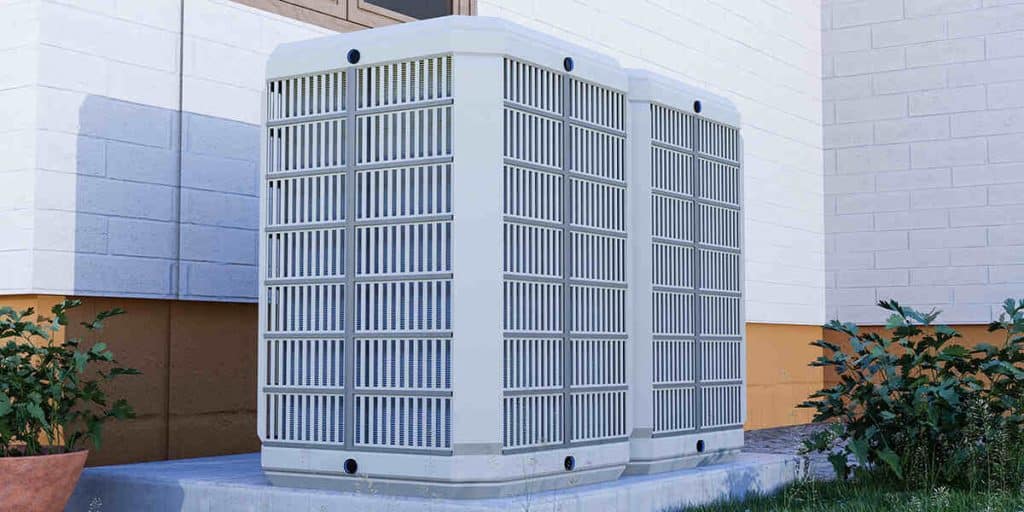Maintaining a healthy HVAC system ensures your continued indoor comfort. Temperature control features provided by your air conditioning system allow you to combat seasonal temperature extremes. However, the complex mechanisms of these systems can easily experience issues that obstruct optimal functioning.
Condenser and evaporator coils are two of the most important mechanisms for heating and cooling capabilities. These coils can become dirty over time and cause various problems for your HVAC system. But will a dirty condenser coil cause freezing?
Understanding the impact of dirty coils allows you to call heating and cooling services before the problem evolves. Learn more about the dangers of dirty coils and contact a professional service technician from Eastern Shore HVAC to clean your unit today.
Why Dirty Condenser Coils Cause Freezing
In short, yes, dirty condenser coils cause freezing. If not enough warm air flows throughout the coils, the unit can freeze up.
In healthy HVAC systems, condenser coils return refrigerant into its liquid state, removing heat from the air cycling through the unit in the process. If your system remains unserviced for too long, these coils can become dirty.
Dirty coils can’t reabsorb the water that is a byproduct of the cooling process fast enough, causing it to freeze. Left unattended, small frosts can develop into large blocks of ice that obstruct your HVAC’s functioning. Furthermore, as the ice begins to melt, it can overwhelm the drip pan, leading to leaking and water damage.
Other Issues from Dirty Coils
If you’re asking, “Will a dirty condenser coil cause freezing?” then you should also be asking what other issues accompany frozen coils. Read about the various other problems resulting from dirty coils below.
Decreased Efficiency
With dirty coils, your HVAC unit functions at less than optimal levels. Since your unit cannot achieve your desired temperature as easily, it will have to work twice as hard to compensate.
As a result, your air conditioner’s efficiency decreases significantly and takes longer to cool your home. It might also limit proper airflow and cause bigger problems with your system’s ductwork and air quality.
Higher Utility Bills
When the efficiency of your unit decreases, you can expect to pay more for monthly utility expenses. Because your unit is working harder to compensate for its hampered cooling and airflow capabilities, it utilizes more energy and costs you more to receive the same temperature control benefits.
Decreased Heat Transfer
Heat transfer gets your air to the right temperature each day. Condenser coils utilize liquid refrigerant to extract the heat from warm air within your home, providing cool and refreshing air instead.
Dirty coils decrease your unit’s heat transfer capabilities, which limits your system’s ability to achieve your desired temperature. You might notice your home never quite reaches the right level of coolness or takes much longer to do so.
Decreased Lifespan
With dirty coils, your unit is working overtime to compensate for decreased efficiency. As a result, it’s likely that your system could experience additional problems as it struggles to achieve your desired temperature. You can expect units with chronically dirty coils to have a shorter lifespan.
Other Reasons an Air Conditioner Might Freeze
Dirty coils aren’t the only cause of air conditioning freezing. Below are some other reasons why your unit may develop ice and frost.
Leaking Refrigerant
Refrigerant is the chemical responsible for removing heat from warm indoor air. If this chemical leaks, it can cause various problems for your system. One of the most common issues is that it freezes your unit.
Damaged Blower Motor
There’s no use cooling air if the mechanism responsible for distributing that air is out of operation. When your unit has a damaged blower motor, not only will it likely cease air flow throughout your house, but it could also freeze your unit. Call professionals if you notice a sudden and significant decrease in airflow.
Dirty Air Filters
Similar to dirty coils, dirty air filters obstruct the cooling process and might retain too much cold air within the HVAC unit. Freezing can result from this infringement on the cooling process.
Damaged Evaporator Coils
Evaporator coils help facilitate the cooling process by turning refrigerant into its gaseous state to interact with warm air. Damage to the evaporator coils might cause refrigerant to linger as a liquid and freeze your unit.
Enlist Professional Services from Eastern Shore HVAC
For more answers to the question “will a dirty condenser coil cause freezing” or to schedule AC coil services, call Eastern Shore HVAC at (732) 800-9416 or fill out the form on our website today!

